
Hagen or Högni is a Burgundian warrior in Germanic heroic legend about the Burgundian kingdom at Worms. Hagen is often identified as a brother or half-brother of King Gunther. In the Nibelungenlied he is nicknamed "from Tronje".
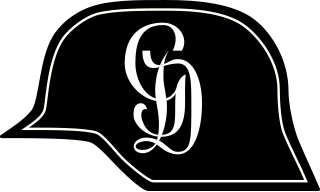
The Panzergrenadier Division "Großdeutschland", also commonly referred to simply as Großdeutschland or Großdeutschland Division, was an elite combat unit of the German Army that fought on the Eastern Front in World War II.

A case for two is a German television series, which premiered on 11 September 1981 on ZDF. The series, set in Frankfurt, features two main characters who solve crimes: a defense attorney and a private investigator.

Christian Friedrich Hunold was a German author who wrote under the pseudonym Menantes.

Schulmädchen-Report: Was Eltern nicht für möglich halten is a 1970 West German sex report film directed by Ernst Hofbauer and produced by Wolf C. Hartwig.
281st Security Division was a rear-security division in the Wehrmacht of Nazi Germany. Established in 1941, the unit was deployed in German-occupied areas of the Soviet Union, in the Army Group North Rear Area. The unit was converted to an infantry division in 1945, while stationed in Courland.
Der Rattenfänger von Hameln is a grand opera in five acts by Viktor Nessler. The German libretto by Friedrich Hofmann is based on a 1875 romantic poem by Julius Wolff about the Pied Piper of Hamelin.
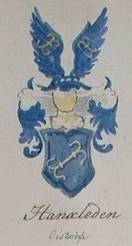
The Hanxleden family is a Westphalian noble family whose seat is the village of Hanxleden, today part of Schmallenberg in the district of Hochsauerland in Germany. In the 14th and 15th centuries the family provided several bailiffs (Amtmänner) of Fredeburg.
The Westend Verlag publishing house was founded in January 2004 in Frankfurt, by Mark J. Karsten and Michael Morganti, first as a" one-book-publishing ": The title "50 einfache Dinge, die Sie tun können, um die Welt zu retten" appeared in September of that year and quickly became a huge success. The theme of the program are non-fiction books on topics such as politics, economy, society and ecology.

Johann Sebastian Bach composed the secular cantata Die Zeit, die Tag und Jahre macht, BWV 134.1, BWV 134a, while he was in the service of the court of Leopold, Prince of Anhalt-Köthen. Bach wrote the work as a serenata for the celebration of New Year's Day 1719.
Der Himmel dacht auf Anhalts Ruhm und Glück, BWV 66.1, BWV 66a, is a congratulatory cantata by Johann Sebastian Bach. The work was first performed in Köthen on 10 December 1718. The music has been lost apart from a fragment, but Bach appears to have recycled some of his material in other works, allowing for the cantata's partial reconstruction.

Sternensommer is a German children's and youth television series that aired in 1981 on ZDF. Originally 12 episodes were planned, but, ultimately for cost reasons, only six were produced.
Ihr Häuser des Himmels, ihr scheinenden Lichter, BWV 193.1, is a secular cantata by Johann Sebastian Bach first performed on 3 August 1727. The music is lost, but it can be partially reconstructed as several movements are known to have shared music with Ihr Tore zu Zion, BWV 193.2, a church cantata which was premiered around three weeks after Ihr Häuser des Himmels, ihr scheinenden Lichter.
Ich bin in mir vergnügt, BWV 204, is a secular cantata composed by Johann Sebastian Bach in Leipzig between 1726 and 1727.
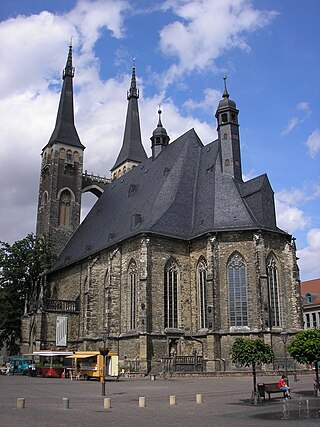
Lobet den Herrn, alle seine Heerscharen, BWV 1147, BWV Anh. 5, is a church cantata text by Christian Friedrich Hunold which was performed, most likely in a setting by Johann Sebastian Bach, for the twenty-fourth birthday of Prince Leopold of Anhalt-Köthen on 10 December 1718. The composition is lost, but its libretto survives in a 1719 print.
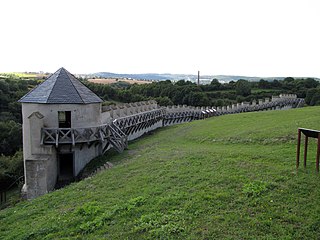
Katzenberg Hillfort is a Roman refuge fort near Mayen in Germany dating to the 4th century.
Erich Hunold was a German opera singer, working mainly as a baritone.
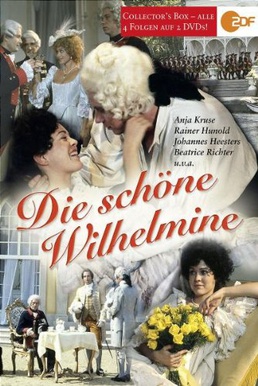
Beautiful Wilhelmine is a West German historical television series broadcast on ZDF in four episodes in 1984. It is an adaptation of the novel Die schöne Wilhelmine by Ernst von Salomon. It is based on the life of Wilhelmine, Gräfin von Lichtenau and her relationship with the Prussian King Frederick William II of Prussia.
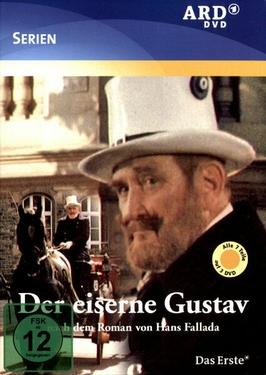
Iron Gustav is West German television series which originally aired on ARD in seven episodes between 27 August and 8 October 1979. It is based on the 1938 novel Iron Gustav by Hans Fallada about a Berlin taxi driver still using a horse-drawn carriage, and the hardships he faces due to increasing competition from motor cars in the Weimar Era. In 1928 to demonstrate what he can still do he takes his carriage from Berlin to Paris.











